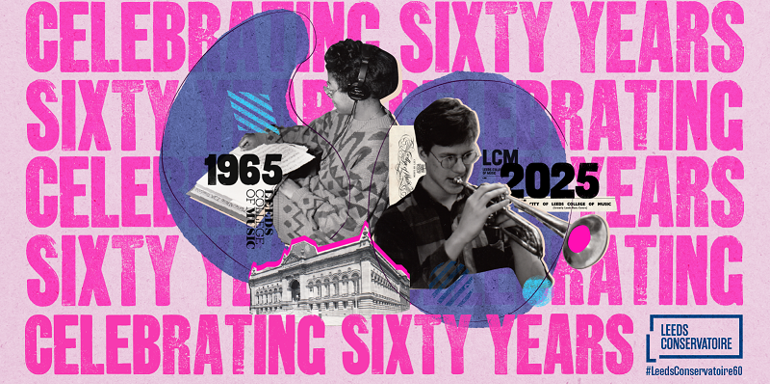
Celebrating 60 Years of Leeds Conservatoire
2025 marks 60 years of Leeds Conservatoire. To celebrate this anniversary, we are reaching out to alumni and staff to help us build an archival picture of the last sixty years.
Visit a special exhibition, Music Leeds Us, marking this milestone, which celebrates the people, places and magic moments that have shaped the city’s musical identity across six vibrant decades.
Do you have any physical or digital artefacts or objects from your time studying or working with us? Photos, flyers, tickets? Or any tales of memorable experiences from your time here?
If so, we'd love to hear from you, and to stay in touch - please fill out the form below.
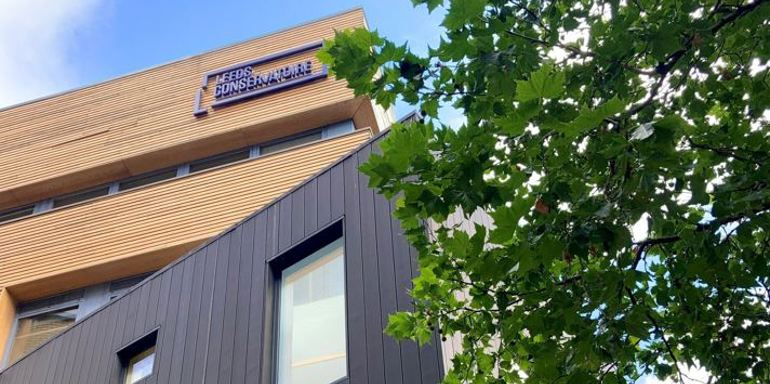
The History of Leeds Conservatoire - 60th Anniversary
Written by Alim Kheraj
Alim Kheraj is a freelance journalist, author and podcaster whose work has appeared in The New York Times, The Guardian, GQ and Dazed. His first book, Queer London, was published in 2021. He teaches Music Journalism at Leeds Conservatoire.
For 60 years, Leeds Conservatoire has been a pioneer, helping shape and support the musical landscape in its home city of Leeds, as well as the broader scene across the UK and beyond.
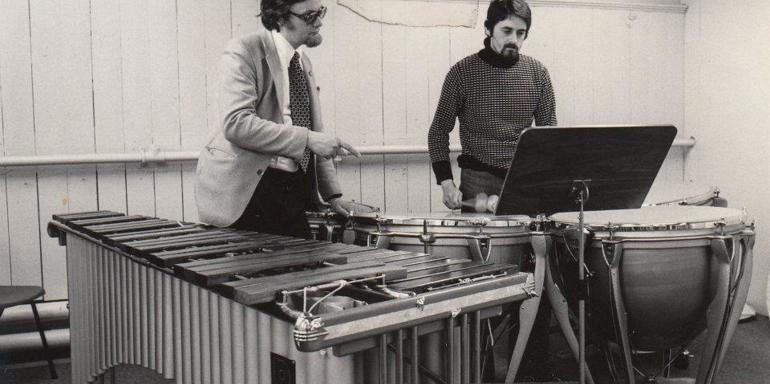
1965 was a revolutionary year in music — Dylan went electric and the Rolling Stones released “(I Can’t Get No) Satisfaction”. In the heart of Yorkshire, another revolution was underway: the founding of Leeds Conservatoire. Then known as Leeds Music Centre, it was initially conceived as an educational and community hub. Its beginnings were modest — just a few rooms set aside in the grand yet imposing Victorian building that today houses Leeds City Museum — but by 1965 its operations had grown so rapidly that it came to occupy an entire wing of the building.
That year also marked a turning point when the Music Centre was elevated to a full-scale music college, with Joseph Stones appointed as director. Within two years, the conservatoire had already become a pioneering force with the introduction of its diploma in Jazz and Light Music, the first full-time higher education course in Jazz in Europe, and the first short course in Indian music in Britain in 1968.
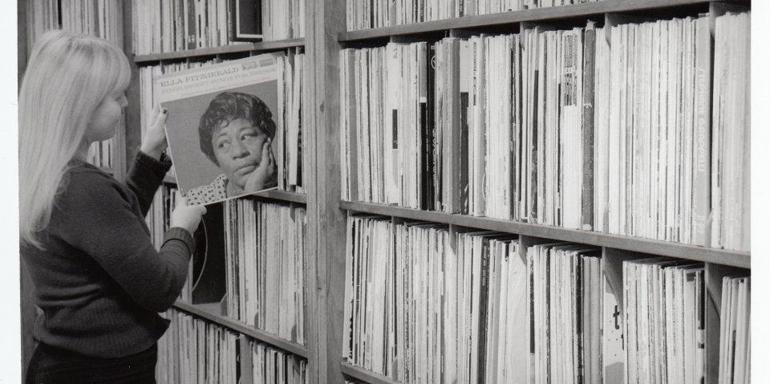
In the 1970s, the organisation was renamed City of Leeds College of Music (becoming simply Leeds College of Music in 1997). By then, it was already attracting exceptional talent among staff and students, including the likes of Alan Barnes, the ELO’s Louis Clark, Elizabeth Mansfield and composers Jeffrey Lewis and Ian Milnes. At the conservatoire’s heart was, and remains, an adventurous and multicultural spirit, one cultivated by ambitious concerts, student showcases, annual festivals and partnerships with the likes of Leeds Playhouse, South Asian Arts UK, Opera North and a number of national festivals.
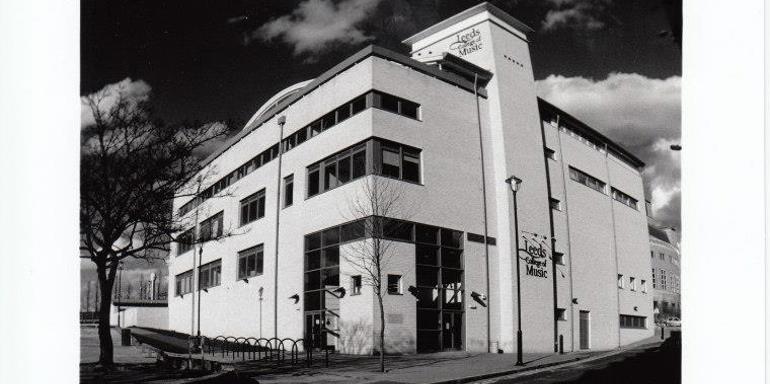
During the early ‘90s, amid national educational reform, the conservatoire underwent a flurry of change as Joseph Stones retired and was succeeded by David Hoult. This evolutionary period saw further commitment to innovation: 1993 saw the introduction of the Jazz Studies BA, the first Jazz degree in Europe, and over the next three decades the organisation fearlessly expanded its curriculum, becoming the first conservatoire to offer degrees in music production (2001) and popular music (2005).
The conservatoire moved into its current home at Quarry Hill in 1997. An ever-growing student body resulted in significant expansion, including the opening of student halls, a new library building and a concert hall, The Venue. Junior provision formally began in 2001 with the Saturday Music School (now Leeds Junior Conservatoire), supporting young musicians through accessible, high-quality music education.

English Teacher following their Mercury Prize 2024 win. Photo credit: Mercury Prize
A number of leadership and managerial changes across the last two decades ushered in a new era, and in 2020 Leeds College of Music become Leeds Conservatoire, a name change that not only honoured the organisation’s long-held conservatoire status, but also its history of, and commitment to progressive training and education. That same year, Professor Joe Wilson, who first came to work at the conservatoire in 2013, was appointed as Principal.
In recent years, alumni such as John Newman, Michael Spearman (Everything Everything) and recent graduates English Teacher have found major commercial and critical success. Others, meanwhile, have set up organisations such as Leeds-based MAP Charity (Music and Arts Production), which supports vulnerable and marginalised young people to study the creative arts.
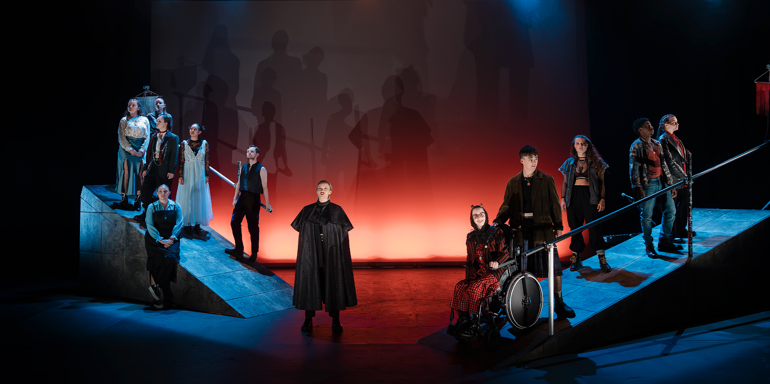
Now, as it celebrates its 60th anniversary, Leeds Conservatoire is recognising its pioneering legacy while setting its sights firmly forward. After a groundbreaking six decades, it remains committed to innovation, diversity and excellence in education, music and the performing arts, all in service of nurturing the talented students of the tomorrow. As Leeds Conservatoire Principal, Professor Joe Wilson, says:
“The aspiration to be creative, innovative, daring and to make exciting music and performance has always been in our DNA. Long may it continue.”







